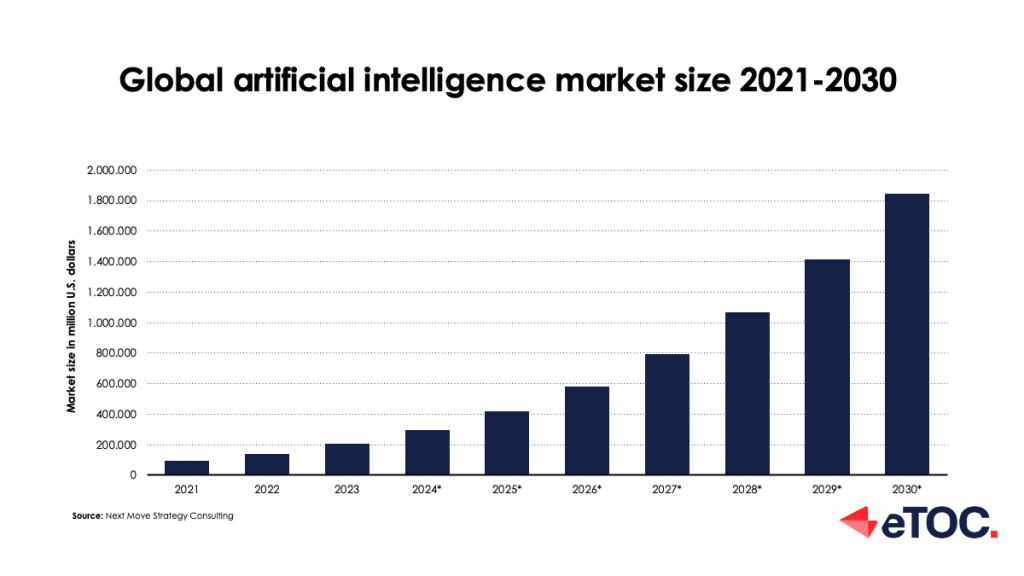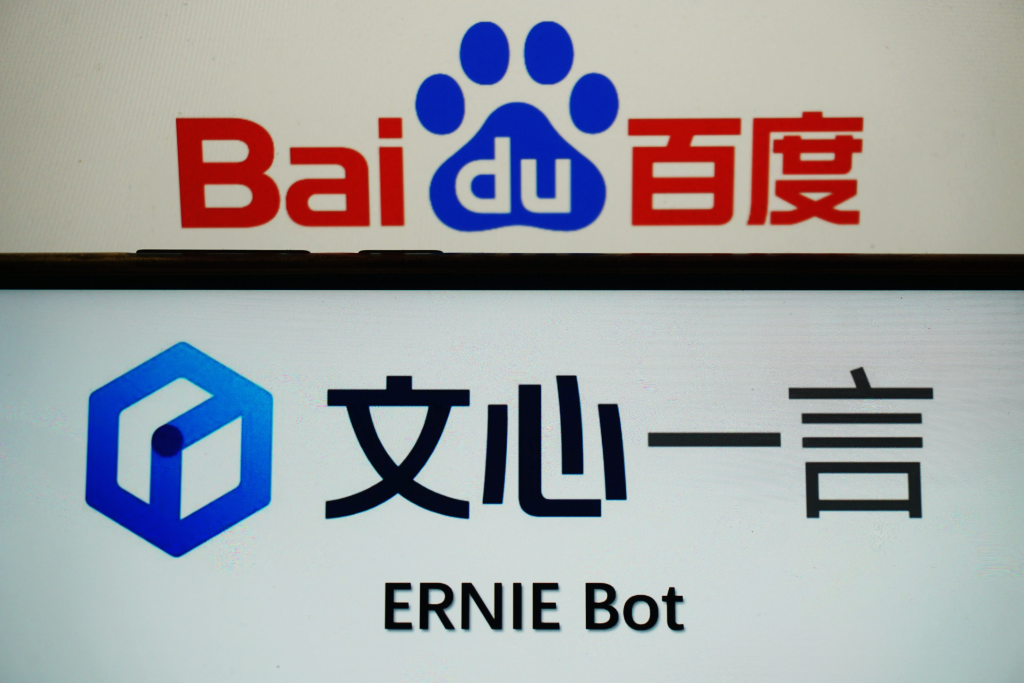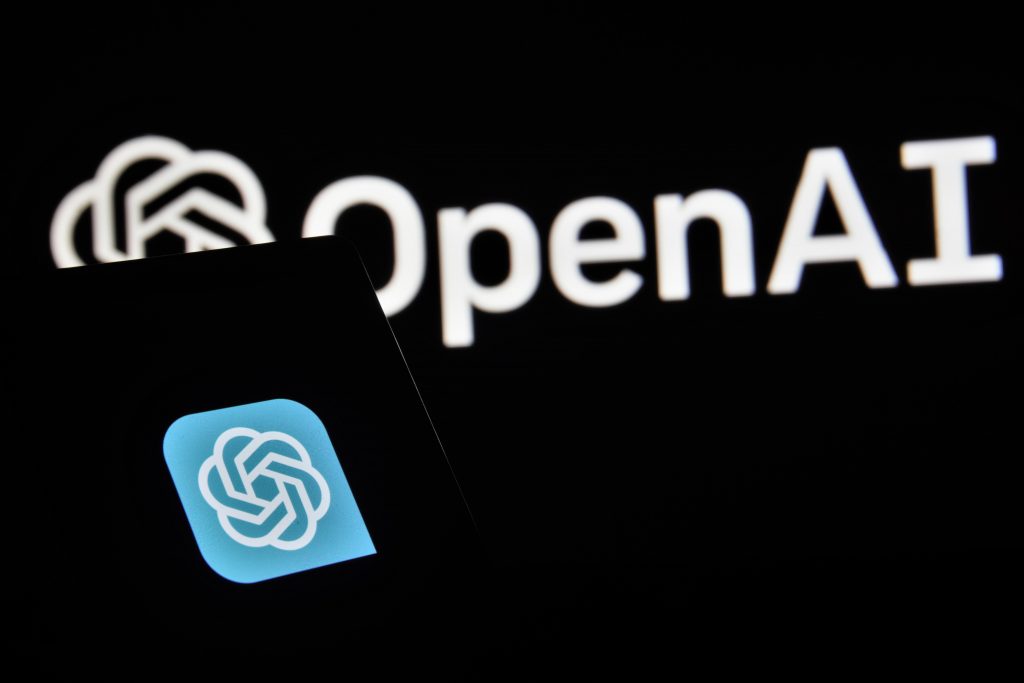AI Development: A Comparison of China and the West
Artificial intelligence (AI) promises to revolutionize human achievements. With prominent global leaders asserting that supremacy in AI could translate to worldwide dominance, it’s evident that AI will shape the future geopolitically. The rise of models like ChatGPT signifies rapid AI advancement, but with its growth comes concerns, particularly about its potential misuse.
US-China AI Rivalry
As the epicenters of AI research, the US and China vie for dominance. The US frames this rivalry as a contest between democratic and authoritarian ideals. Given the staggering $17.5 trillion AI is expected to contribute to the global economy by 2030, it’s no surprise that AI has become a strategic asset, especially in defense. Even with the US leading the AI race with innovations like ChatGPT, China is making strides.
But the contest for AI dominance between the US and China isn’t merely technological; it’s ideological, economic and strategic.
- Ideological Battle:
The US narrative paints the AI race as a battle between democratic values and authoritarian systems, highlighting the dichotomy of individual freedoms and centralized governance.
- Economic Implications:
The forecasted $17.5 trillion economic contribution by 2030 emphasizes the transformative potential of AI across sectors like healthcare, finance and beyond.
- Strategic Importance:
The defense sectors worldwide are integrating AI for purposes ranging from autonomous drones to cybersecurity. While the US has showcased advancements like ChatGPT, China’s progress, as seen with Baidu’s ERNIE 4.0, cannot be understated.

Future AI Developments
The aspiration towards Artificial General Intelligence (AGI), an AI variant that might outpace human intelligence, looms large. While its promise is tremendous, potential misalignments with human values pose inherent risks. Estimates on AGI realization span from a few decades to perhaps a century.
International Perspective on AI
The global implications of AI have ignited profound international dialogue. At the vanguard of this discourse is the World Artificial Intelligence Organization (WAIO), championing the cause by uniting stakeholders to confront the challenges AI presents. Conversations are often dominated by the military applications of AI, particularly concerning autonomous weaponry, though the path to effective enforcement is fraught with complexities, as nations are hesitant to impose legal restrictions on their AI advancements. AI’s scope extends beyond mere automation; it heralds transformative breakthroughs ranging from medical diagnoses to combating climate change, underscoring its colossal potential to revolutionize industries, reshape economies, and transform societal frameworks. As we tread the precarious path of unregulated AI, the emphasis on international cooperation becomes paramount. Be it through initiatives steered by the UN, specialized AI-focused global bodies, or the formulation of universal AI regulations, united efforts are indispensable for guiding AI’s growth ethically and responsibly.
Regulatory Landscapes: Navigating AI Ethics and Governance
- US: With a preference for a market-centric approach, individual US states are stepping up, but a cohesive federal AI strategy is yet to be established.
- European Union: The EU’s AI Act of 2023 offers a balanced governance model, categorizing AI applications based on societal risks.
- China: Prioritizing centralized oversight, China interweaves state control with its AI vision, emphasizing harmony, safety, and nationalism.
China's AI Landscape
Emerging as a global juggernaut, China occupies a commanding position in the AI frontier. Baidu, the tech colossus, recently spotlighted its AI prowess by launching the ERNIE 4.0 model at the Baidu World 2023 summit. This innovation, touted to rival OpenAI’s GPT-4, underscores Baidu’s accelerated momentum in AI. Robin Li, Baidu’s co-founder and CEO, took the stage to demonstrate ERNIE 4.0’s multifaceted capabilities — from crafting dynamic advertising materials and real-time video production to spinning out a martial arts narrative from a simple cue. While intricacies like the model’s training parameters remained under wraps, Li’s exposition echoed Baidu’s broader vision: embedding AI deeply within its foundational offerings, such as search functionalities and mapping services. Envisioning a shift, Li imagines Baidu’s platforms, like Wenku, transforming into potent AI-enhanced utilities that bolster user creativity. Remarkably, since its public debut in August, the ERNIE Bot has captivated a colossal audience, boasting 45 million users, exemplifying Baidu’s soaring AI aspirations. Meanwhile, tech behemoth Alibaba adopts a more measured stance, reserving its ‘Tongyi Qianwen’ chatbot primarily for business clientele.

While Baidu and Alibaba’s endeavors illuminate China’s AI ambition, many indigenous AI solutions haven’t yet matched the resonance US counterparts command domestically. Still, outliers like Kuaizi are gaining traction, particularly in marketing circles. Notably, even amidst China’s AI innovations, ChatGPT maintains a substantial foothold within the nation. On the flip side, obstacles related to data integrity, computational prowess, and the lack of inter-corporate alignment pose challenges. With strategic initiatives anchored in President Xi’s ‘Digital China’ blueprint, a transformative shift in China’s AI domain appears imminent. Interestingly, Beijing’s rigorous online governance might paradoxically catalyze China’s AI trajectory, with a keen focus on safety, ethical frameworks, and groundbreaking innovations.

Heavyweights, including Alibaba, Tencent, and ByteDance, are relentlessly probing the AI potential, particularly large language models (LLMs) and generative AI. Fortified by governmental backing and synergistic industrial alliances, China’s AI ecosystem is thriving. Yet, its developmental arc could be sculpted by global viewpoints and the overarching regulatory tapestry.
Comparative Regulatory Approaches
- China: Centered on state control and economic dynamism, China’s regulations emphasize AI safety, socialist values, and national unity.
- United States: Favoring self-regulation and innovation, the US leans towards voluntary guidelines with some state-led initiatives.
- European Union: Prioritizing consumer protection, fairness, and safety, the EU’s AI Act may set a global standard.
The AI Future
Despite the US currently maintaining a notable advantage in AI, historical precedence suggests that initial leadership doesn’t necessarily equate to enduring supremacy. Drawing parallels, platforms such as TikTok rose to global prominence without pioneering their niche, suggesting China’s AI trajectory might emulate a similar path. Beyond mere technological prowess, the AI contest revolves around innovation, adaptability, and strategic decisions made by nations and industries amidst this swiftly changing domain. At present, global attention is fixated on the US’s leading role, Europe’s rapid progress, and China’s emerging dominance. Additionally, the societal ramifications of AI are undeniable. Even as there’s potential for automation to replace certain jobs, the absence of human creativity and empathy in AI ensures some vocations, rooted in human touch and ingenuity, will always be indispensable. In this data-centric age, the imperative of privacy protection can’t be overstated. As data propels AI forward, the essence of individual privacy protection remains at the forefront, with events like the Cambridge Analytica controversy underscoring the risks. Balancing AI’s meteoric rise with the preservation of essential human rights presents a significant challenge.
Conclusion
As AI’s tapestry continues to unfold, its impact is undeniable. From potentially displacing certain job sectors to revolutionizing others, its dual-edged nature becomes apparent. While AI promises efficiency and innovation, it can’t replicate human empathy and creativity, ensuring some professions remain irreplaceable. Moreover, in the age of data-driven AI, the sanctity of individual privacy becomes paramount. Past incidents, like the Cambridge Analytica scandal, serve as reminders of AI’s potential misuse. As we stand on the cusp of an AI-driven era, the world needs a balanced approach—harmonizing advancements with ethical considerations. Whether the future holds collaboration or competition between the East and West remains to be seen. However, one thing is clear: AI will undoubtedly shape our shared future.

Discover the Future of Shopping with "Shopatainment – The Future of Shopping"
Our new book “Shopatainment – The Future of Shopping” explores how the innovative fusion of shopping and entertainment is revolutionizing the way we shop. Learn about the origins of this trend in China, the technologies and formats being used, and the opportunities and challenges it presents for the West.

Want to expand to the Chinese market? Contact us for a first free consultation.
